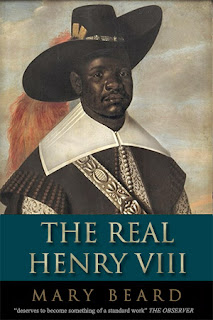I don’t know about you, but I’m absolutely shocked that the New York Times didn’t see fit to mention any of my medievalesque fiction in its recent hit piece on Rachel Fulton Brown:
The idea of medieval studies as a haven for white nationalist ideas gained ground when Rachel Fulton Brown, an associate professor of medieval history at the University of Chicago, began feuding with Dorothy Kim, an assistant professor of medieval English literature at Brandeis, after Dr. Kim, writing on Facebook, highlighted an old blog post of Dr. Fulton Brown’s titled “Three Cheers for White Men,” calling it an example of “medievalists upholding white supremacy.”
Many scholars were outraged when Dr. Fulton Brown, in a riposte to Dr. Kim written a few weeks after Charlottesville, tagged the right-wing writer Milo Yiannopoulos, whose website then ran an article about the dispute. Last July Mr. Yiannopoulos followed up with a 16,000-word attack on the field, which assailed Dr. Kim and others as “an angry social justice mob.”
The article caused a furor, as scholars accused colleagues of providing screenshots of private Facebook conversations and surreptitious recordings of conference sessions to Mr. Yiannopoulos.
Since then, Dr. Fulton Brown has become more isolated, as some who initially supported her have distanced themselves after she began citing the far-right writer Vox Day and even, in a recent blog post, entertained the idea that the Christchurch shooting might have been a “false flag operation.” (Dr. Fulton Brown, in an interview, said the depiction of her as a white supremacist or a member of the alt-right is “a misnomer” that “depends on a fantasy about me.”)
But the climate of intense suspicion and division the feud helped foster, particularly on social media, remains.
 I am, however, genuinely disappointed they didn’t mention my run-ins with English historical fantasist Mary Beard, much less run any of my well-known memes on the matter.
I am, however, genuinely disappointed they didn’t mention my run-ins with English historical fantasist Mary Beard, much less run any of my well-known memes on the matter.
I did take the liberty of pointing out to Ms Schuessler that with regards to any guilt by association created by citing me, everyone from Nature to The New York Times is similarly guilty, as it is not uncommon for science journals and newspapers to cite my “Religion does not cause war” argument, although they usually attribute it incorrectly to my primary source, The Encyclopedia of Wars.
But the numbers and percentages reported are always the dead giveaway because they only appeared in The Irrational Atheist.